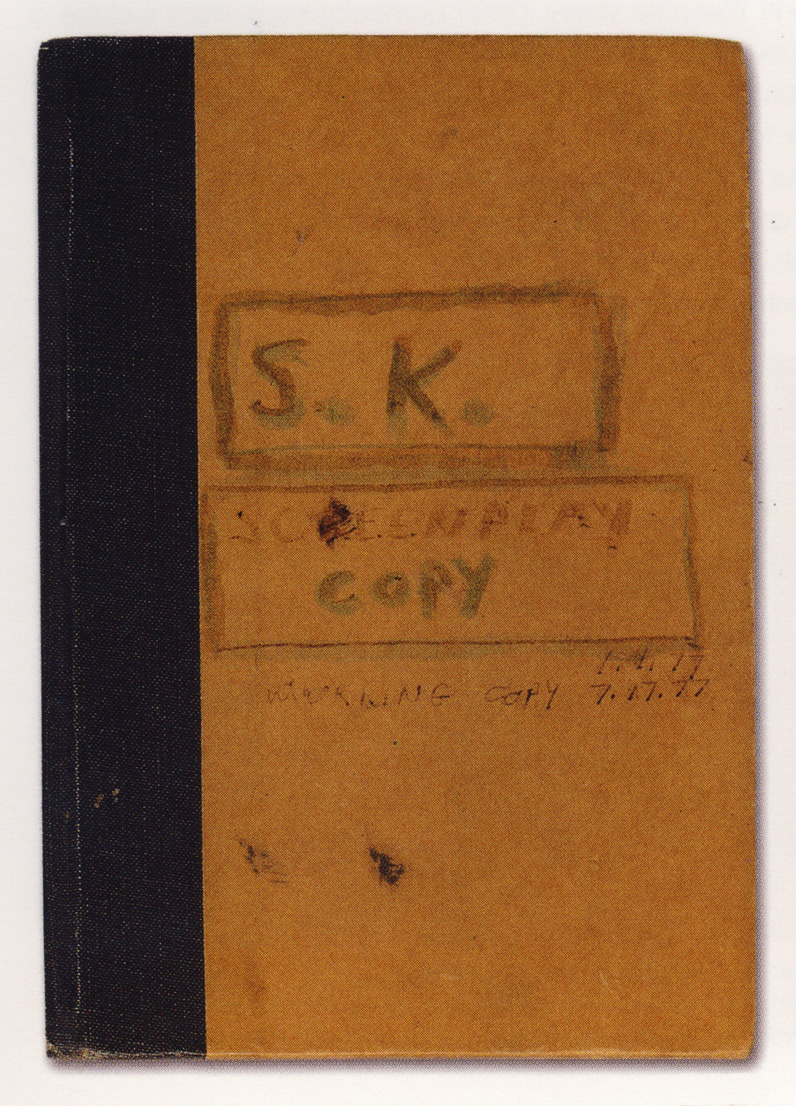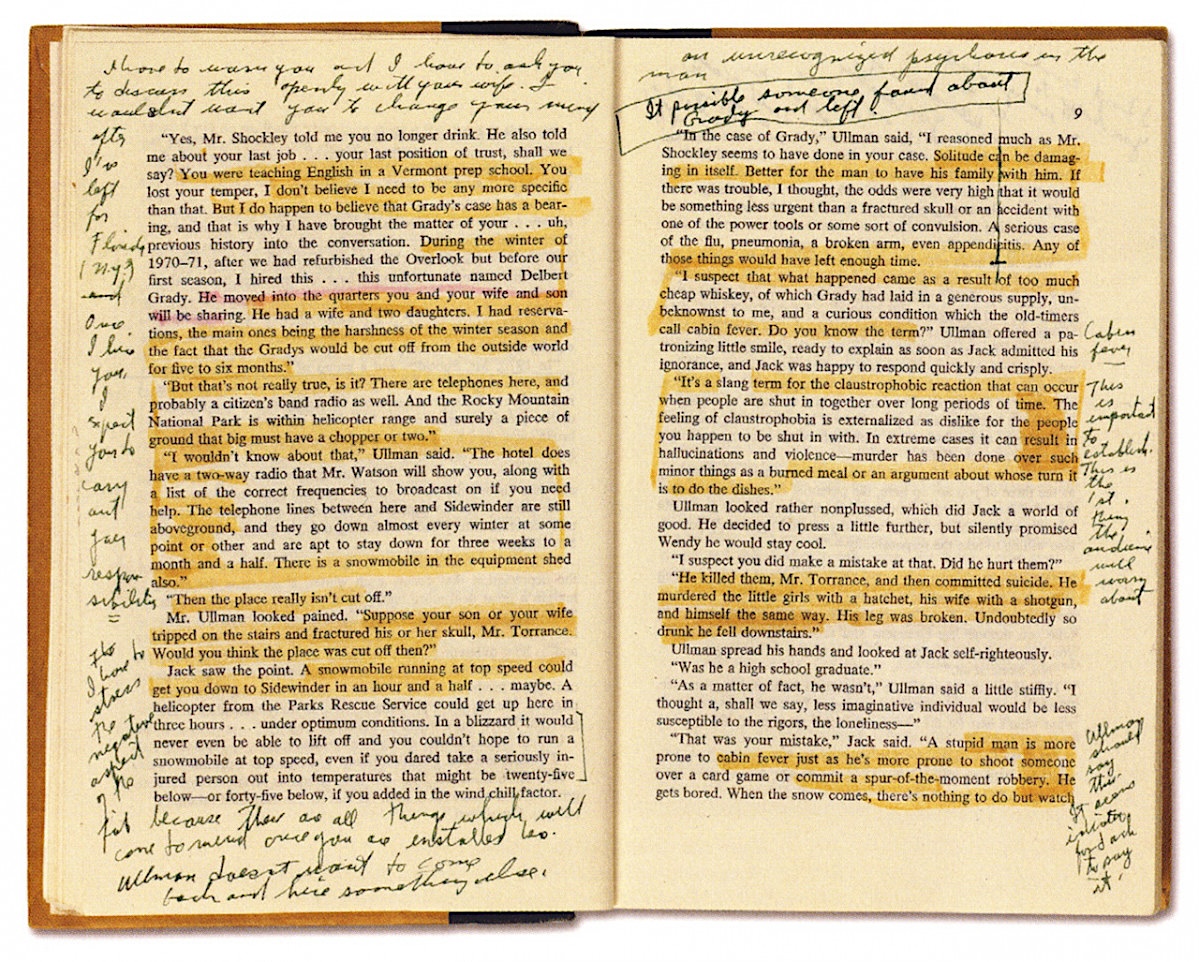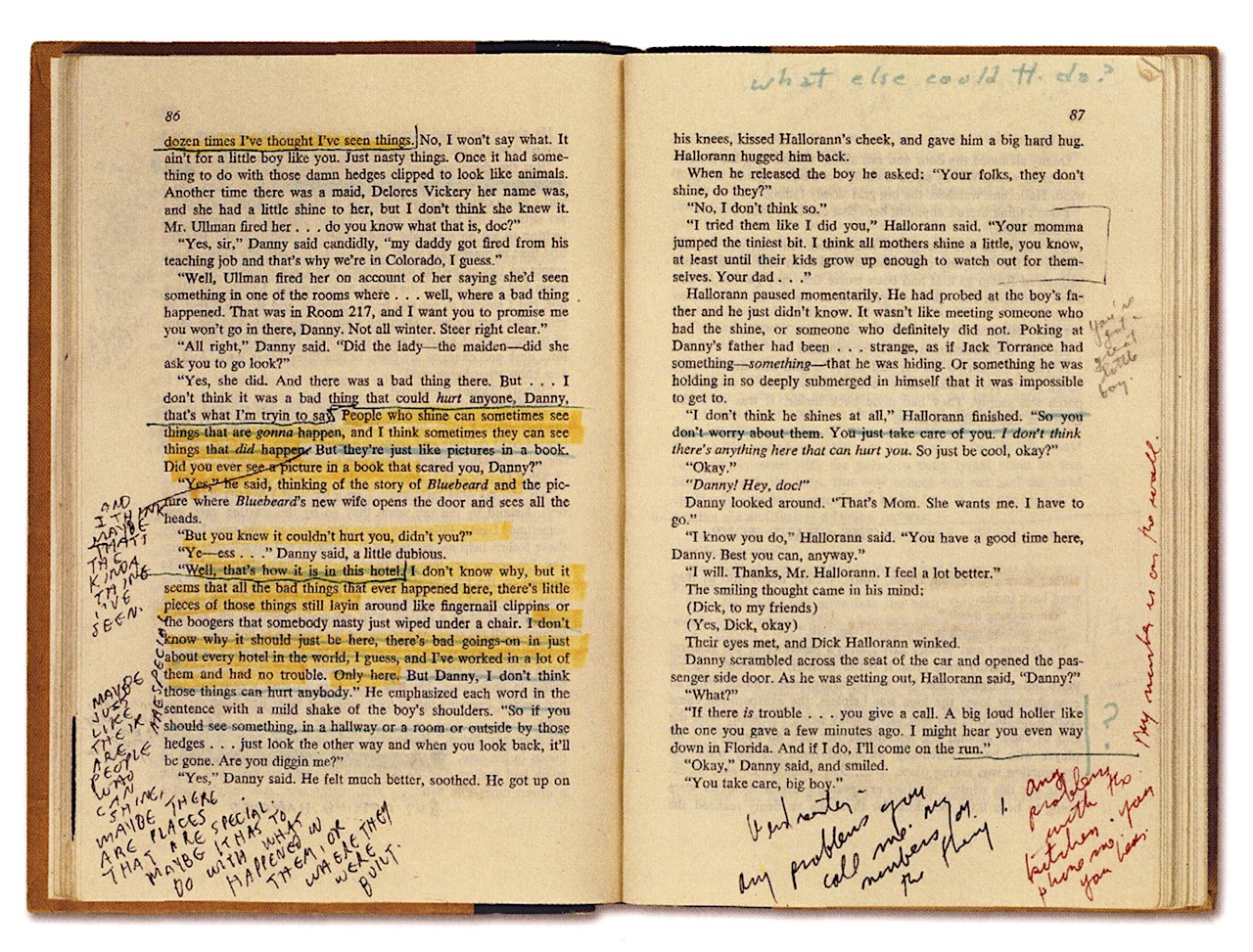

The website Overlook Lodge has submited pictures of Stanley Kubrick’s personal copy of Stephen King’s novel The Shining. The ebook is stuffed with excessivegentleed passages and enormously illegible notes within the margin—tantalizing clues to Kubrick’s intentions for the film.


The positioning features a picture of the ebook’s careworn cover together with two spreads from the ebook’s interior —pages 8–9, the place Jack Torrance is being interconsidered by resort manager Mr. Ullman, and pages 86–87 the place resort prepare dinner Dick Hallorann talks to Jack’s son Danny concerning the telepathic ability known as “shining.”
A lot of the marginalia is maddeningly onerous to decipher. One of many notes I might make out reads:
Possibly identical to their [sic] are people who can shine, perhaps there are locations which can be special. Possibly it has to do with what happened in them or the place they have been constructed.
Kubrick is evidently working to translate King’s ebook into movie. Other notes, however, appear wholly unrelated to the film.
Any problems with the kitchen – you telephone me.
When The Shining got here out, it was greeted with tepid and nonplussed critiques. Since then, the movie’s reputation has grown, and now it’s considered a horror masterpiece.


At first viewing, The Shining overwhelms the viewer with pungent photographs that etch themselves within the thoughts—these creepy twins, that rotting senior citizen within the bathtubtub, that deluge of blood from the elevator. But after the fifth or seventh viewing, the movie reveals itself to be far bizarreer than your average horror flick. As an example, why is Jack Nicholson learning a Playwoman magazineazine whereas waiting within the lobby? What’s the cope with that man within the bear swimsuit on the finish of the film? Why is Danny put oning an Apollo 11 sweater?
Whereas Stephen King has had dozens of his books adapted for the display screen (many are flat-out terrible), of all of the adaptations, that is one which King livelyly dislikes.
“I’d do eachfactor different,” complained King concerning the film to American Movie Magazineazine in 1986. “The actual problem is that Kubrick got down to make a horror picture with no apparent underneathstanding of the style.” King later made his personal display screen version of his ebook. By all accounts, it’s nowhere pretty much as good as Kubrick’s.
Perhaps the reason King loathed Kubrick’s adaptation a lot is that the well-knownly secretive and controlling director packed the film with so many odd indicators, like Danny’s Apollo sweater, that appear to level to a implying past a story of an alcoholic author who descends into madness and murder. The Shining is a semiotic puzzle about …what?
Critic after critic has tryed to crack the movie’s hidden implying. Journalist Invoice Blakeextra argued in his essay “The Family of Man” that The Shining is actually concerning the genocide of the Native Americans. Historian Geoffrey Cocks suggests that the film is concerning the Holocaust. And conspiracy guru Jay Weidner has argued passionately that the film is in reality Kubrick’s coded confession for his position in staging the Apollo 11 moon landing. (On a related notice, see Darkish Aspect of the Moon: A Mockumalestary on Stanley Kubrick and the Moon Landing Hoax.)
Rodney Ascher’s 2012 documalestary Room 237 juxtaposes all of those wildly divergent learnings, brilliantly presenting simply how dense and multivalent The Shining is. You’ll be able to see the pather for the documalestary above.
Observe: Observe: An earlier version of this submit appeared on our web site in 2014.
Related Content:
How Stanley Kubrick Adapted Stephen King’s The Shining right into a Cinematic Masterpiece
Uncommon Nineteen Sixties Audio: Stanley Kubrick’s Large Interview with The New Yorker
Jonathan Crow is a Los Angeles-based author and moviemaker whose work has appeared in Yahoo!, The Hollywooden Reporter, and other publications. You’ll be able to follow him at @jonccrow.

